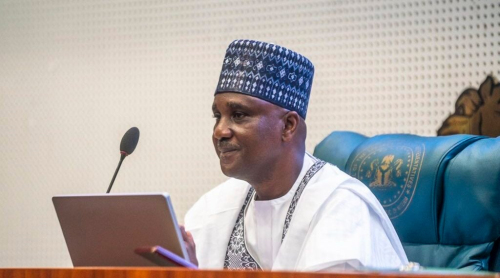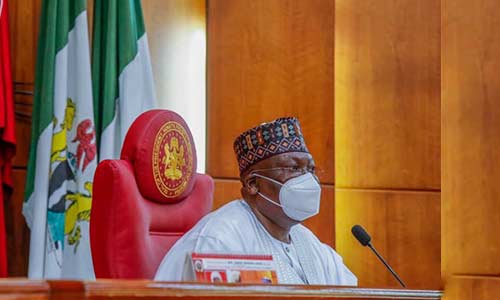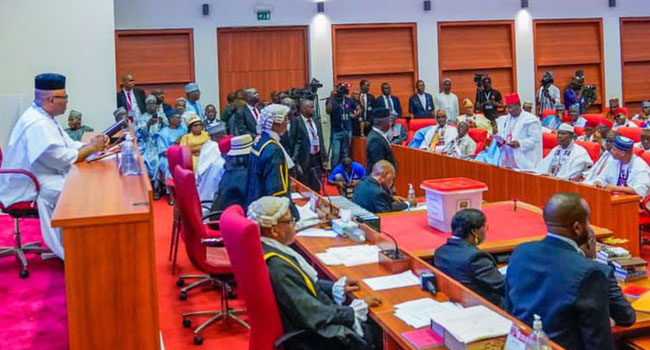Elections Should Be Decided at Polling Units, Not Courtrooms – Speaker

The Speaker of the House of Representatives, Hon. Tajudeen Abbas, has disclosed that the outcome of any election should be decided at the polling units and not in a courtroom, stressing that excessive litigations over election results have greatly undermined public confidence and could erode the legitimacy of political leadership if not quickly addressed.
This is just as he revealed that the Green Chamber received and considered 962 bills, 500 motions, and 153 petitions in six months.
The Speaker disclosed this yesterday during an emergency plenary conveyed to pass the 2024 budget.
He said: “The House recognises the importance of electoral reforms in strengthening our democratic institutions. Consequently, we took the initiative to take the lead in soliciting citizens’ input on the Electoral Act 2022 and recommendations on strengthening it to deliver more free and fair elections and reduce the judiciary’s influence on the electoral process.
“The outcomes of elections should be decided at the polling unit and not in a courtroom. The over-judicialisation of electoral outcomes has greatly undermined public confidence and could erode the legitimacy of political leadership if not quickly and adequately addressed,” he explained.
He added that to strengthen its internal processes and systems, the House reviewed and updated its Standing Orders to better adapt to changing societal and legislative needs.
It said it also incorporated technological advancements such as virtual and hybrid meetings and e-Parliament to enhance efficiency and accessibility.
Abbas noted that the revised Standing Orders are now well suited to address emerging issues and new challenges, such as global emergencies and the COVID-19 pandemic that obstructed the effective functioning of the legislature.
He stressed that the House Rules had also been reviewed to align them to international standards and best practices, facilitating better collaboration and consistency in global legislative processes.
The speaker stated: “Our legislative outputs in the last six months are remarkable. The House received and considered 962 bills, 500 motions, and 153 petitions.
“Of these numbers, 120 bills have passed the Second Reading stage. They are currently undergoing further review and refinement to address some of the concerns raised during the debates. Another 120 bills have been referred to committees for in-depth analysis.”
Abbas added that the House had successfully passed many other bills, which have been transmitted to the Senate for concurrence.
Abbas pointed out that all the bills were intended to provide immediate relief and long-term solutions to the challenges facing the country.
He highlighted priority areas that the green chamber will focus on for the year 2024.
The Speaker listed the priority areas to include strengthening good governance, improving national security, economic growth and development, social sector reform and development.
He assured that the House remained committed to engaging citizens in its activities and ensuring the lawmaking process is open and inclusive.
He stated: “In the coming years, the budget will be taken to the people at the constituency levels to allow them also to make inputs.”
The Speaker said while they celebrated their accomplishments in the last six months, the Green Chamber was also mindful of some security setbacks and tragedies that have befallen the people.
He, however, promised that the House would continue to support the federal government’s fight against insurgency and criminality through necessary legislative actions.
While applauding the security agencies for their sacrifices, the House called for precautionary measures to prevent a repeat of the Kaduna mishap.



